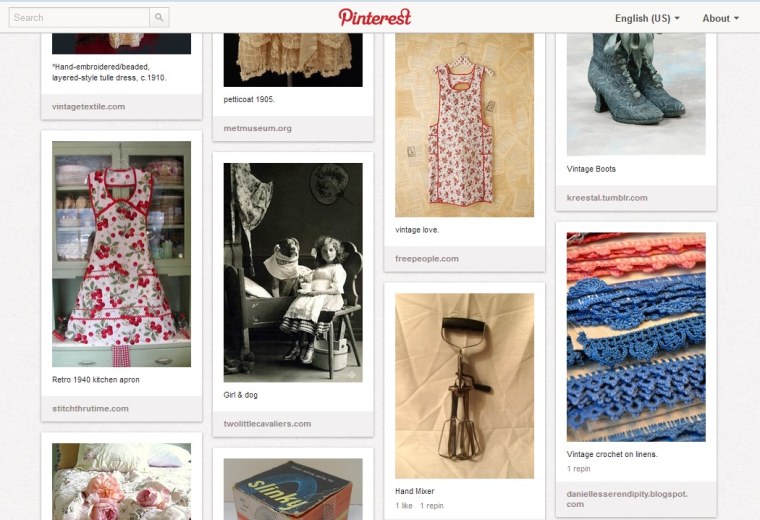Utah's Internet Crimes Against Children Task Force leader is stunned at the audacity of child porn traders on the popular website Pinterest, where users "pin" pictures, ideas and products to virtual walls and exchange Web links. That anyone would publicly post such material suggests "real evil at work," the task force leader says. But it's far from an isolated incident.
The material was first brought to the task force's attention after Pinterest itself reported the material to the National Center for Missing and Exploited Children, which collects and organizes such data.
A Pinterest spokesman told NBC News in an email that the company uses "both technology and human review to find, remove and report potentially illegal content. Child porn or anything like it gets reported to the NCMEC, which decides how to proceed."
When a user pins something on Pinterest (or puts posts on Tumblr or Facebook), their Internet Protocol address and the time of posting are recorded; with the IP address and time, a user's approximate geographic location can often be determined. In this case, the NCMEC found that the Pinterest porn caches had been posted from Utah, and the local Internet Crimes Against Children Task Force office was alerted. (Each state has its own task force which works together with a state's attorney general's office.)
Utah Internet Crimes Against Children Task Force field commander Patty Reed said in an interview with NBC News that once provided with the basic information in such cases, the task force begins the work of collecting further information from Internet providers, local police and other sources. These data can be used to support charges when the team decides it's time to contact the offender or recommend charges be filed.
"They are good investigations," she said. "We've made contact with a few of the offenders and we've gotten a few confessions from them."
Why the fuss about the things found on Pinterest? Blame the site's reputation as place for all things home, food and fashion-related.
"We all thought Pinterest was a place to go post your recipes or their decorating ideas," task force chairman Ken Wallentine, who made the "real evil" remark, told The Deseret News recently.
Pinterest can certainly be a place for such home-related postings, and a site spokesman told NBC News that the vast majority of Pinterest's community is using the site the way it was intended. Even a recent site policy shift to allow photographs of artistic nudes isn't going to turn the site into a hub for pornography, to say nothing of the illegal kind, the spokesman said. But even the site's diligence in policing content can't prevent all abuse.
While it was unpleasant to see such objectionable material "infiltrate" Pinterest, as Reed put it,it wasn't actually much of a surprise. "We get cases from Tumblr, Facebook, Myspace ... a lot of our cases are from file-sharing programs and stuff like that."
That's backed up by statistics from the National Center for Missing and Exploited Children's CyberTipline, to which companies like Pinterest and Facebook are federally mandated to report potentially exploitative material (individuals can also contribute reports).
During the week of May 27 to June 2, there were 13,012 reports of child pornography submitted via the CyberTipline, along with dozens of other potential cases of online exploitation of children. Since its establishment in 1998, the center's CyberTipline has received more than 1.8 million reports.
Unfortunately, law enforcement can't swoop down on offenders instantly (although a site like Pinterest can and does ban offending users). Not only must the reports be vetted and jurisdictions determined, but subpoenas and warrants must be obtained. Even if officers raid a suspect's house, the evidence still has to be examined by a computer forensics lab, which could take months.
As for the recent cases in Utah, they are all currently actively being investigated, and therefore not public record. It may be a while; Reed said that due process and a big caseload mean "the time before a person is criminally charged could be up to a year."
Devin Coldewey is a contributing writer for NBC News Digital. His personal website is coldewey.cc.
